Harriet Smith enjoys some innovative chamber music performances from Alban Gerhardt and Daniel Pioro at this year’s event
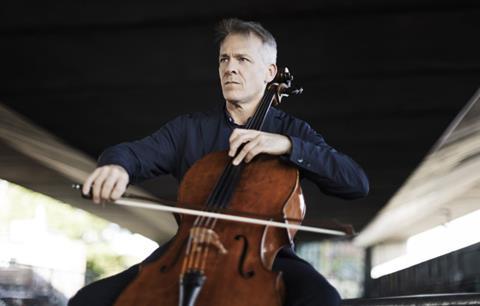
Unlike some festivals, which have become shadows of their former selves, Aldeburgh continues to thrive and this 75th iteration was no exception. I was there for 24 hours, time enough to hear two of its Featured Musicians in this most atmospheric of settings.
In the ‘1961 recital’ (14 June) Alban Gerhardt and his long-time musical partner and friend, Steven Osborne, found themselves with big shoes to fill: those of Rostropovich and Britten in a re-creation of a June 1961 concert in which Britten’s Cello Sonata (written for the great Russian) was unveiled.
Schubert’s Arpeggione Sonata was beautifully set up by Osborne, and throughout the easy rapport between the two musicians was much in evidence, technique always absolutely at the service of the music. The slow movement had a guileless beauty, its link to the finale unerringly judged. Sometimes this movement can tend towards the trite, but not here, and the minor-key episode was given with élan.
As must have been the intention in 1961 each piece occupied a strikingly different world, a quality absolutely caught by Gerhardt and Osborne. Their Britten was particularly fine, showing their confidence in a performance quite different from its original creators, but every bit as persuasive. The pizzicato-infested Scherzo, and its highly reactive piano part had if anything more menace here, contrasting utterly with the dirge-like ‘Elegia’. After the fourth-movement March (suitably Shostakovichian in its musical references), the finale abounded in a chattering, bustling energy, fearlessly brought off. They followed the original concert to the letter, encoring the second movement before the interval.
Read: Life Lessons: Alban Gerhardt
Read: Cellist Alban Gerhardt on the importance of open string practice
Read: Masterclass: Alban Gerhardt on Saint-Saëns Cello Concerto no.1
Schumann’s late Fünf Stücke im Volkston were given a litheness that belied the bar-lines, and a lift to the composer’s turbulent rhythms. The Debussy Sonata tugged us to a different world again, their long experience of playing together informing every colour and shading, down to the most hushed dynamics. For the original 1961 encore Peter Pears put in an appearance to sing the tenor aria for Bach’s Cantata BWV41. Not to be outdone, Ian Bostridge appeared mid-piece to do the honours.
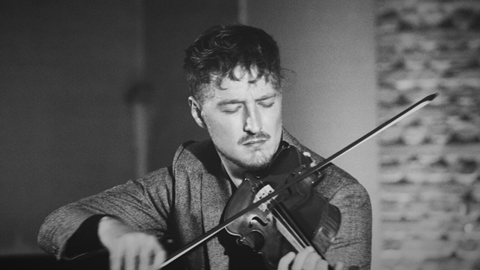
From here to a late-night concert with Daniel Pioro, who made such a striking Aldeburgh debut in 2021. This was all about Bach, and he was joined by harpsichordist David Gordon for what was promised to be Bach’s Second Partita interspersed with ‘free-spirited improvisations and sonic meditations’. Some ideas look more enticing on paper than in reality, and I fear this was one of them. There’s no doubting Pioro’s gifts as a musician – or his technique come to that – but his improvisation seemed strangely hidebound. As he riffed on particular phrases, repeating and ornamenting them, shifting the tempo according to whim, into the mix came Gordon’s harpsichord with contributions that seemed closer to American minimalism than the Baroque. There were some isolated moments of beauty and repose, but they were all too few in a frustrating evening.
To church the next morning – Orford Church to be specific, in the company of Gerhardt. He launched his solo recital with Britten’s First Cello Suite and, as on the previous evening, completely owned this music so closely associated with Rostropovich. Here was musicianship of tremendous poise, solemnity where needed, a sense of awe certainly and the experience to know exactly how to leave a phrase hanging in this ecclesiastical acoustic. The delights were many – the playful fugal second movement, his inward, but intense ‘Lamento’, capped by the final ‘Moto perpetuo’, unceasing in its energetic drive in Gerhardt’s hands.
Read: Daniel Pioro on his Götting 1709 ‘Viotti’ Stradivari copy
Read: ‘Give them something to listen to’ - Daniel Pioro: Blink if you dare
Read: Daniel Pioro joins Royal Conservatoire of Scotland as Associate Artist
From here we travelled back to Bach’s Sixth Cello Suite, an object lesson in how to make the composer your own without the gimmickry that had blighted the Pioro experience. Each movement offered its own character study, the forays into the upper register always sweet-toned and a sense of liquidity to his phrasing. All in all, an intensely moving experience crowned by a Gigue high on exuberance.

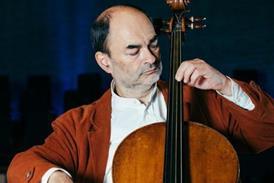
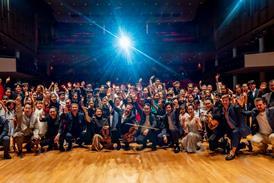
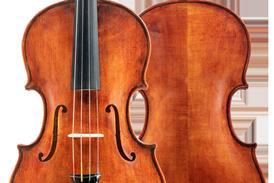





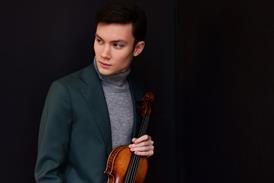
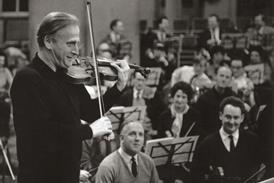
























No comments yet